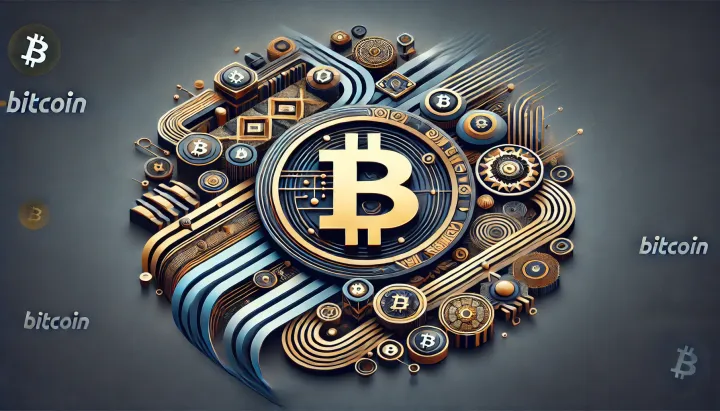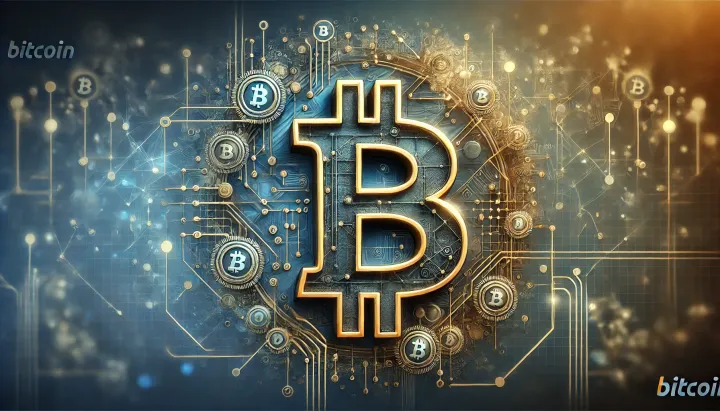Decentralized Finance: Bitcoin’s Impact and Opportunities
In this classic video from September 24, 2016, Andreas Antonopoulos delivers an engaging presentation on Bitcoin, emphasizing its role as a decentralized, permissionless platform for value transfer.

- My 'briefing notes' summarize the content of podcast episodes; they do not necessarily reflect my own views.
- They contain (1) a summary of podcast content, (2) potential information gaps, and (3) some speculative views on wider implications.
- Pay attention to broadcast dates (I often summarize older episodes)
- Some episodes I summarize may be sponsored: don't trust, verify, if the information you are looking for is to be used for decision-making.
Summary
In this classic Bitcoin podcast episode (from September 24, 2016), Andreas Antonopoulos explores Bitcoin’s transformative potential as a decentralized platform that extends far beyond digital currency. By enabling permissionless innovation, Bitcoin disrupts traditional financial systems and presents opportunities for global financial inclusion, particularly for the unbanked. The discussion emphasizes the importance of decentralization for security and user autonomy, while also addressing challenges like volatility and the risks posed by centralized custodial services.
Take-Home Messages
- Decentralized trust platform: Bitcoin enables trust without intermediaries, unlocking opportunities for innovation and autonomy.
- Global financial inclusion: Bitcoin offers unprecedented access to financial services for billions of unbanked individuals globally.
- Security through decentralization: Centralized custodial services replicate traditional banking vulnerabilities; decentralized solutions enhance security.
- Permissionless innovation: Developers can build applications on Bitcoin’s platform without seeking central approval, fueling global innovation.
- Borderless transactions: Bitcoin’s ability to transcend national borders makes it a powerful tool for global financial participation.
Overview
In this 2016 conference presentation, Andreas Antonopoulos introduces Bitcoin as a revolutionary platform that decentralizes trust and financial systems. He traces the evolution of money, situating Bitcoin as the latest and most significant step in a long history of monetary innovations. Bitcoin’s decentralized architecture allows it to function without central authorities, providing users with control over their assets and enabling direct transactions.
A key theme is Bitcoin’s role in empowering unbanked populations by offering access to financial services previously unattainable in many regions. Antonopoulos highlights that Bitcoin’s permissionless nature allows for innovation at the edges of the network, meaning that anyone with access to the internet can create and use applications built on Bitcoin without needing institutional approval.
However, challenges remain. Antonopoulos warns against centralized custodial services that recreate the same vulnerabilities as traditional banking. By pooling users' assets, these services become prime targets for hackers, threatening the decentralized security model that Bitcoin advocates. He urges the development of decentralized alternatives to maintain the integrity of Bitcoin’s ecosystem.
Antonopoulos concludes by imagining a future where machines and individuals seamlessly use Bitcoin for transactions, where financial systems are open and borderless, and where Bitcoin’s decentralized model continues to drive exponential innovation across industries.
Stakeholder Perspectives
- Unbanked individuals: Bitcoin could provide financial access where banks are unavailable, but challenges such as internet connectivity and education must be addressed.
- Financial regulators: Governments must balance fostering innovation with protecting consumers and preventing illegal activity in decentralized systems.
- Traditional banks: Bitcoin presents a disruptive force that may challenge existing business models reliant on centralized control of financial assets.
- Developers and entrepreneurs: The permissionless nature of Bitcoin enables them to build innovative solutions without institutional barriers, but scalability and regulatory compliance remain concerns.
Implications
For policymakers, Bitcoin presents both opportunities and challenges: it enables financial inclusion and innovation but also demands new regulatory approaches to manage its borderless and decentralized nature. Governments will need to craft policies that encourage innovation without compromising security or financial stability.
For the financial industry, Bitcoin is a disruptive force that could challenge the dominance of traditional banks by enabling individuals to bypass intermediaries. This shift towards decentralized financial systems will require new business models and potentially reshape the entire industry. Meanwhile, investors in developing markets may find Bitcoin to be a more stable alternative compared to local currencies, but volatility and regulatory uncertainty pose risks.
Future Outlook
The next decade will see significant growth in Bitcoin’s adoption, particularly as more regions with unstable currencies and weak banking systems turn to decentralized financial solutions. However, widespread adoption will depend on overcoming technological barriers, simplifying user interfaces, and developing decentralized security solutions that can replace centralized custodial services.
As autonomous systems and machine-to-machine transactions become more common, Bitcoin could serve as the backbone for this emerging machine economy. The ability of machines to own and transact in Bitcoin autonomously opens up new possibilities in industries such as logistics, energy, and manufacturing. Bitcoin’s role in these systems could help drive further adoption and innovation.
Information Gaps
- How can decentralized alternatives to centralized custodial systems be developed to enhance user autonomy and security? Developing decentralized systems that maintain the user-friendly aspects of centralized services while ensuring security is critical for the future of Bitcoin.
- What are the most significant barriers to Bitcoin adoption among unbanked populations, and how can they be mitigated? Identifying infrastructural and educational challenges will help expand Bitcoin’s reach among underserved populations.
- How can Bitcoin’s volatility impact its ability to function as a reserve currency, and what measures could stabilize its value? Addressing volatility is crucial for Bitcoin’s adoption as a stable financial asset, especially in global trade and investment.
- What are the legal and ethical considerations of machines owning and transacting in Bitcoin autonomously? The rise of machine economies will require new legal frameworks to manage the ownership and transfer of digital assets between machines.
- What geopolitical and economic factors are most likely to hinder or accelerate the global adoption of Bitcoin as a recognized currency? Understanding the political and economic landscapes will be key to navigating Bitcoin’s global expansion and mainstream adoption.
Broader Implications
Bitcoin’s Role in Global Financial Inclusion
Bitcoin’s decentralized nature offers unparalleled potential for financial inclusion, particularly for the unbanked and underbanked populations. By bypassing traditional banking infrastructure, Bitcoin provides access to financial services for billions of people who lack it. This could reshape global economic dynamics, empowering individuals in developing countries and fostering economic independence.
Disruptive Force in Traditional Finance
As Bitcoin continues to grow, it represents a significant disruptive force in the traditional financial sector. By removing intermediaries like banks, Bitcoin allows individuals and businesses to engage in peer-to-peer transactions, reducing costs and increasing efficiency. Financial institutions will need to adapt their business models to remain competitive in a world increasingly driven by decentralized finance.
Security and Autonomy through Decentralization
The decentralized security model that Bitcoin employs offers a strong alternative to centralized systems, reducing the risks associated with single points of failure. As more industries adopt decentralized solutions, Bitcoin’s approach could serve as a blueprint for secure, autonomous systems that prioritize user control. This shift toward decentralization can lead to more resilient financial and technological infrastructures.
Permissionless Innovation in the Bitcoin Ecosystem
Bitcoin’s open-source, permissionless structure encourages innovation at the network’s edges, allowing developers to build new applications without requiring institutional approval. This could spur exponential growth in technology, with Bitcoin playing a pivotal role in the evolution of decentralized finance, smart contracts, and machine-to-machine transactions. The flexibility of Bitcoin's architecture positions it as a foundation for future technological advancements.
Potential for Machine Economies
With Bitcoin enabling machines to transact autonomously, a new frontier of machine-to-machine economies could emerge. This has far-reaching implications for industries like logistics, energy, and manufacturing, where automation could lead to more efficient systems. As machines begin to own and transfer value autonomously, Bitcoin may become the currency of choice for these automated economies, transforming the nature of economic activity.



Comments ()